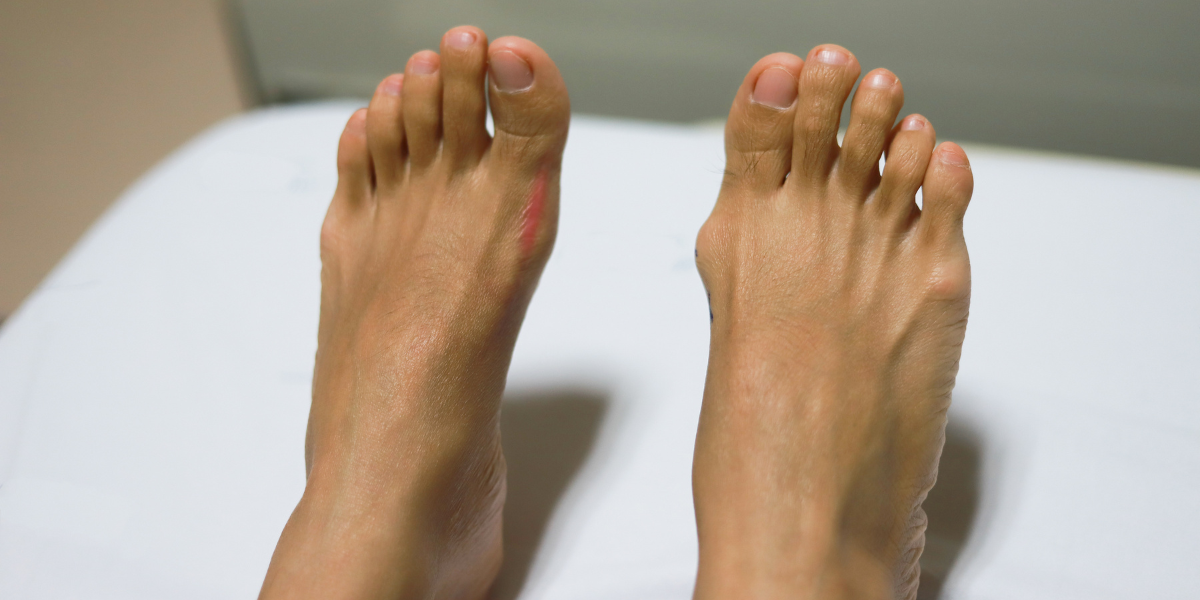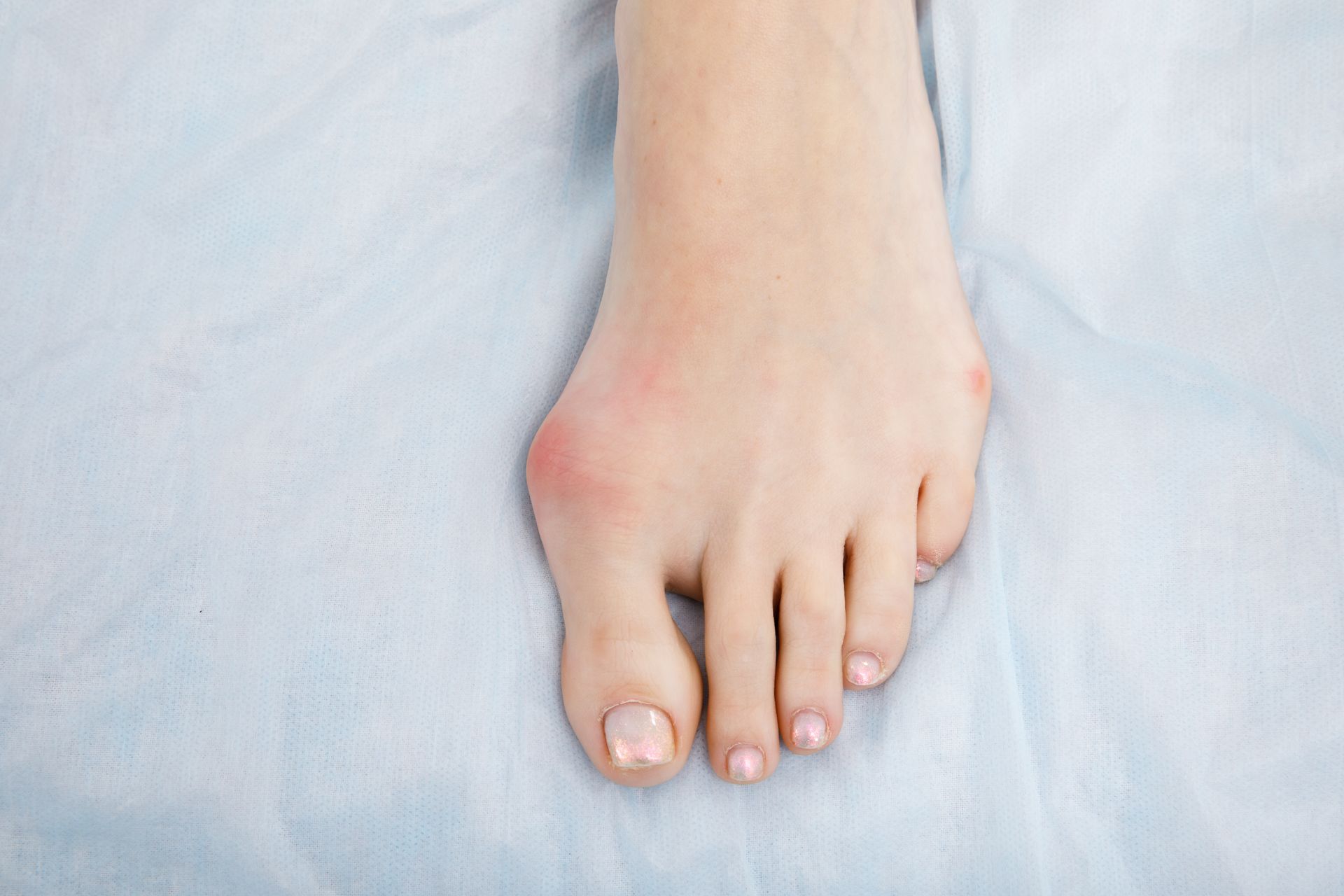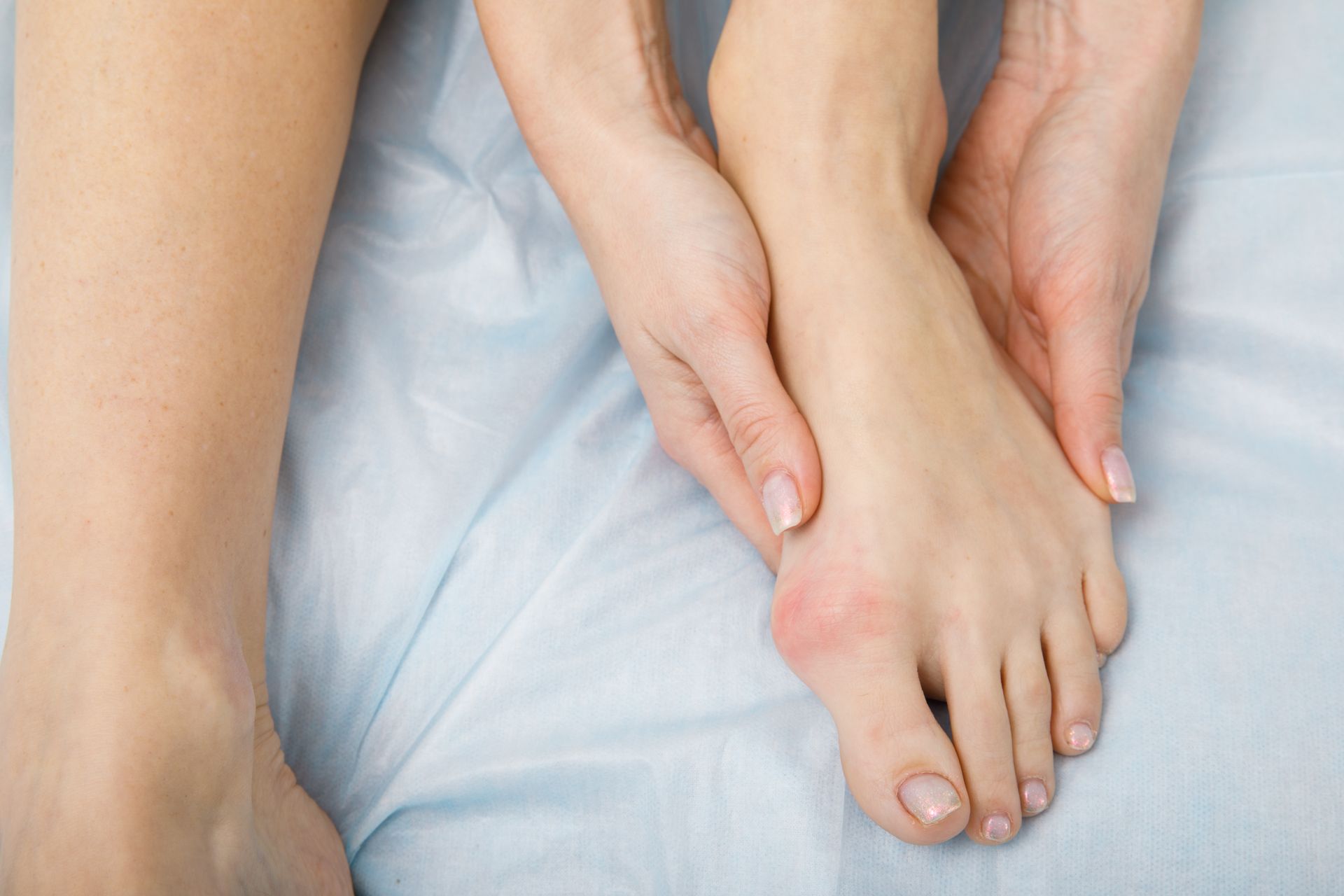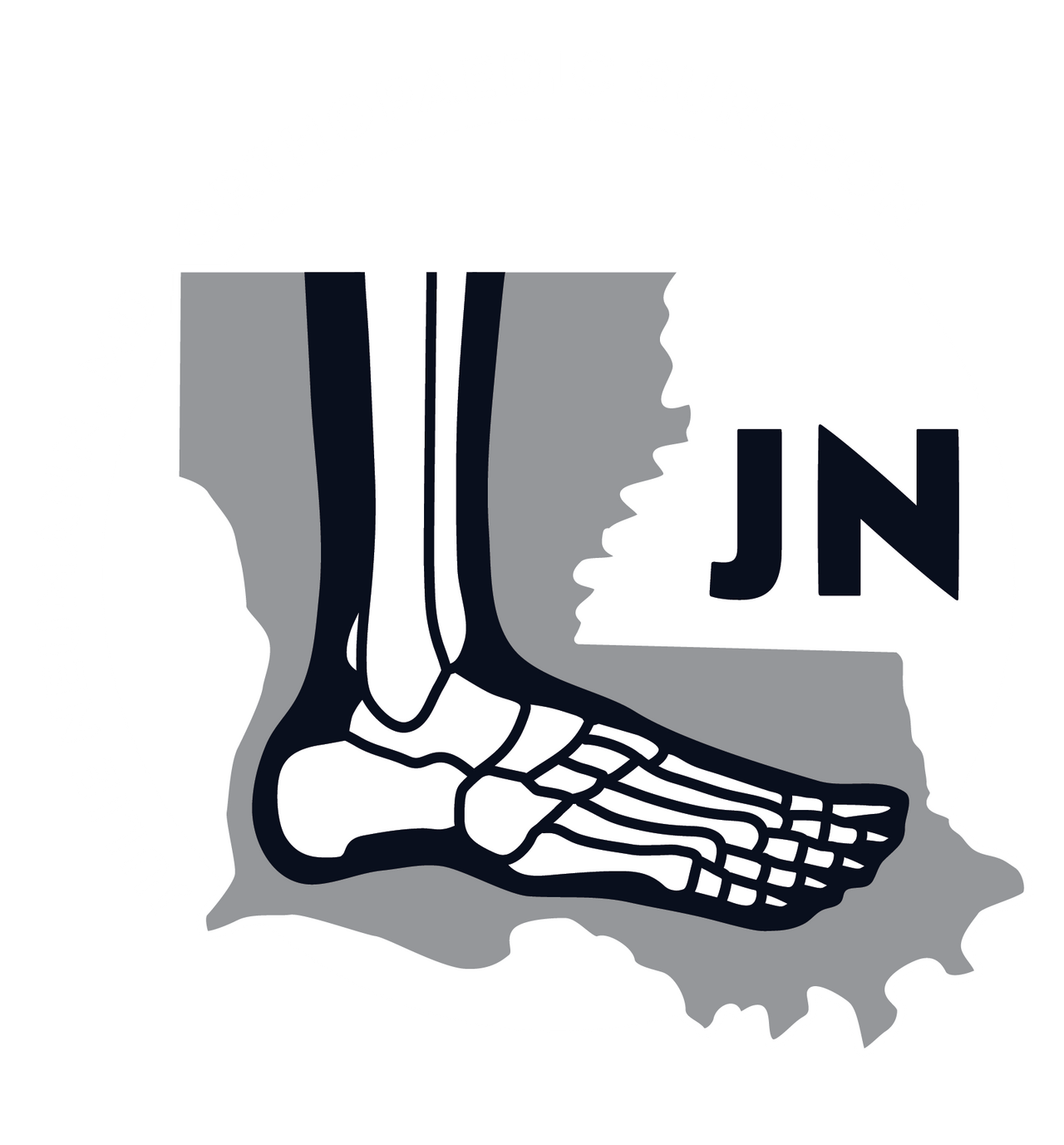Bunions affect millions of Americans each year, causing pain, swelling, and difficulty with wearing shoes and performing daily activities. While many patients try to manage the discomfort on their own, leaving a bunion untreated could potentially lead to long-term complications. As a fellowship-trained orthopedic foot and ankle surgeon in Baton Rouge, Dr. Julie Neumann helps patients understand the importance of early evaluation and how timely treatment, whether non-surgical or surgical, can prevent the problems.
What Happens If You Don’t Treat a Bunion?
Bunions develop when the bones of the forefoot shift out of alignment, creating a visible bump at the base of the big toe. Without treatment, this misalignment continues to progress. Over time, the bunion not only becomes larger and more painful but also affects other structures in the foot. This can lead to lasting damage, loss of mobility, and reduced quality of life.
What Secondary Foot Problems Can Develop from Untreated Bunions?
The earliest consequence of an untreated bunion is persistent foot pain. Initially, discomfort may only be noticeable when wearing certain shoes. Over time, the pain can affect activities such as walking, exercising, or standing for extended periods. Many patients with advanced bunions find it challenging to stay active, which can affect their overall fitness, joint stiffness, and general foot health.
Untreated bunions also place extra pressure on the big toe joint. This stress can lead to arthritis, cartilage damage, and stiffness, making it difficult to bend the toe and sometimes causing constant aching, even without shoes. In severe cases, bunion surgery may be needed to correct the deformity and protect joint health.
As the big toe shifts inward, pressure moves to the smaller toes, which can result in hammertoes, claw toes, or a dislocated toe. Friction and misalignment can also cause corns and calluses, adding discomfort and making shoes more difficult to wear. These secondary foot problems often develop gradually if the bunion is left untreated.
How Untreated Bunions Affect Quality of Life
Ignoring bunion pain may seem manageable at first, but over time, it can impact overall quality of life. Patients often struggle with:
- Difficulty finding shoes that fit
- Limited participation in sports or exercise
- Increased pain during work or daily tasks
- Avoidance of activities due to discomfort
Left untreated, bunions can become more than a cosmetic issue, as they can significantly interfere with independence and mobility.
When Should You See a Doctor for Bunion Treatment?
If bunion pain is significantly affecting your daily life, it’s time to consult a foot and ankle specialist. Non-surgical bunion treatments, such as orthotics, footwear modifications, and splints, can often provide relief in the early stages. When these measures no longer control symptoms, bunion surgery in Baton Rouge may be the best solution to restore alignment and improve function.
Dr. Julie Neumann, a board-certified orthopedic surgeon fellowship-trained in both foot and ankle surgery and sports medicine, offers comprehensive treatment options, including minimally invasive bunion surgery tailored to each patient’s lifestyle.
Why Choose Dr. Julie Neumann for Bunion Care in Baton Rouge?
Patients choose Dr. Neumann for her expertise in both non-surgical and surgical bunion treatments, fellowship training in foot and ankle care, and her experience as a former Division I athlete, which gives her a firsthand understanding of foot pain. She is committed to creating personalized treatment plans that focus on long-term outcomes.
Don’t wait until bunion pain becomes debilitating. Early treatment can prevent long-term complications and help you maintain an active lifestyle. Schedule a consultation with Dr. Julie Neumann today to explore your options for bunion relief.





